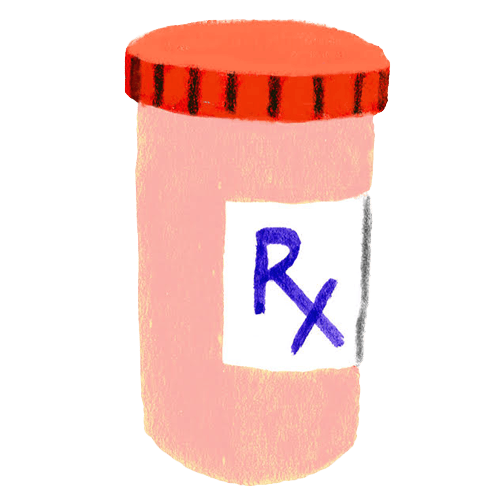- resources
- 3 Drugs to Use with Caution
3 Drugs to Use with Caution
And some safer alternatives

From aching joints to graying hair, we’re all very familiar with the effects of aging. But some things might still surprise you — like the fact that your body may react differently to medications.
As you get older, you may find that medications that were no problem when you were younger can have side effects that surprise you when you’re in your 60s and 70s. On top of that, you’re more likely to be taking multiple drugs when you get older and that can increase the chances of side effects and drug interactions.
"People underestimate the risks of prescription drug side effects," says Dan Blumenthal, MD, MBA, a cardiologist at Massachusetts General Hospital. "I think a lot about this issue. Not only do I see a lot of older patients in my practice, but my own parents are in their 70s.” He says before he prescribes a medication to a patient, he always asks himself: Would I give this to my parents?
Here are some of the drugs he'd tell them to avoid — and the safer alternatives he recommends.
Sleep aids
What do they do?
Lots of older people have insomnia — trouble falling asleep or staying asleep. Medications like Ambien (Zolpidem) and anti-anxiety drugs like Ativan (Lorazepam) or Xanax (Alprazolam) can help in some cases.
What’s the issue with them?
Unfortunately, the cons can outweigh the pros. These drugs can make people feel confused and — in some — actually make it harder to sleep. They can also be habit-forming, so people can’t sleep without them.
What’s an alternative?
Try healthy sleep habits — like following a regular schedule, getting regular exercise, and unplugging from phones and TV for at least 30 minutes before bed. If that doesn’t help, see a sleep specialist.
Blood thinners
What do they do?
If you have heart problems — or you’ve had blood clots before — blood thinners are an important treatment. They help “thin” the blood so it won’t clot.
What’s the issue with them?
The problem is that these drugs — especially Warfarin, which has been the go-to blood-thinner for decades — can increase your risk for bleeding and bruising. With Warfarin, you’ll also need weekly trips to the doctor to make sure your blood is “thin” enough. For these reasons, Warfarin isn’t Dr. Blumenthal’s first choice for treating clotting.
What’s an alternative?
“If one of my patients needs to be on a blood thinner, I prefer to start with newer ones that are easier to manage, especially Eliquis (apixaban) or Xarelto (rivaroxaban),” he says.
Opioids
What do they do?
These are a type of pain reliever and include Percocet, OxyContin (oxycodone), and Vicodin (hydrocodone).
What’s the issue with them?
You’ve probably heard about these drugs on the news. While they work well with certain types of severe pain (from cancer or surgery, for example) they can also be addictive and — in higher doses — life-threatening. Dr. Blumenthal says he’s very careful when he prescribes them and uses the lowest dose possible.
What’s an alternative?
For most people with chronic pain, the risks of opioids outweigh the benefits. If over-the-counter (OTC) painkillers like high-dose Tylenol (acetaminophen) or ibuprofen aren’t enough, there are other options — like pain gels, patches, acupuncture, and tai chi. For each of these medications, Blumenthal suggests speaking with your doctor about your options.
If you’re on any of the medications discussed above and have concerns, don’t stop taking them on your own — schedule an appointment with your doctor to talk over the pros and cons and review your medication list together.
Blumenthal encourages his patients to ask questions during their appointments and wants others to feel empowered to do the same. “Consider your provider as a resource who is there to help you feel your healthiest.”
Disclaimer
This article is for general reference only. Always talk to your doctor or other health professional for medical advice.